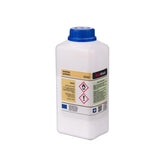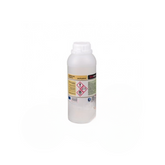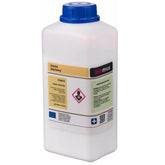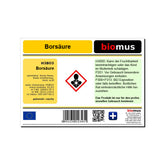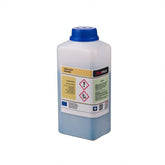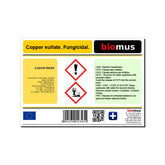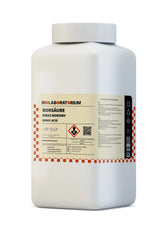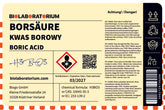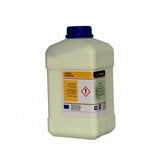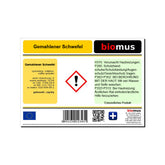Hydroquinone, also known as dihydroxybenzene, is a chemical compound that plays an important role in a wide range of industrial sectors and applications. In this blog post, we will take a closer look at the properties, industrial applications, and relevant safety aspects of hydroquinone.
What is Hydroquinone?
Hydroquinone is an aromatic diol consisting of two hydroxyl groups (-OH) attached to a benzene ring. It is a crystalline, white solid with a characteristic odor. Hydroquinone is highly soluble in water, alcohol, and other polar solvents.
Chemical Properties
Hydroquinone is a redox-active compound that can be easily oxidized. In the process, benzoquinone, a yellow substance, is formed. This redox process is reversible, so hydroquinone can be recovered from benzoquinone through reduction.
Additionally, hydroquinone possesses antioxidant properties and can act as a radical scavenger. This property makes it valuable in various applications, such as photography or plastic manufacturing.
Industrial Applications of Hydroquinone
Hydroquinone is used in numerous industrial sectors. Some of the most important application areas are:
Photography
In photography, hydroquinone is used as a developer for black and white films and papers. It reduces exposed silver halides to metallic silver, thus enabling the visualization of the latent image.
Plastic production
Hydroquinone serves as an antioxidant in plastic production. It prevents unwanted oxidation and aging of polymers, thereby increasing the durability and stability of plastics.
Chemical industry
In the chemical industry, hydroquinone is used as an intermediate for the production of dyes, pharmaceuticals, pesticides, and other organic compounds.
Cosmetics
In the cosmetics industry, hydroquinone is used as a skin lightening agent. It inhibits melanin production and can thus reduce pigmentation spots and age spots.
Food industry
Hydroquinone is used in the food industry as an antioxidant to extend the shelf life of fats and oils.
Safety aspects of hydroquinone
Although hydroquinone is used in many industries, some safety aspects must be considered during handling and storage:
Health risks
Hydroquinone can be harmful to health if inhaled, swallowed, or upon skin contact. It can cause respiratory irritation, digestive disorders, and skin irritation. Therefore, special caution is required when handling hydroquinone, and the use of protective equipment such as gloves and respiratory masks is necessary.
Environmental aspects
Hydroquinone is classified as hazardous to water and should not enter water bodies. Improper disposal can lead to environmental damage. Therefore, disposal must be carried out in accordance with applicable regulations.
Regulatory requirements
The use of hydroquinone is subject to various regulations in the European Union. For example, its use in cosmetic products is limited to a maximum of 2%. Furthermore, the corresponding safety regulations must be observed during the production, storage, and transport of hydroquinone.
Conclusion
Hydroquinone is a versatile chemical compound with numerous industrial applications. From the photo lab to plastic production, industry benefits from the useful properties of the substance. At the same time, when handling and disposing of hydroquinone, applicable safety regulations must be observed to minimize health and environmental risks. With proper handling, however, hydroquinone can continue to be a valuable component of many industrial processes.


